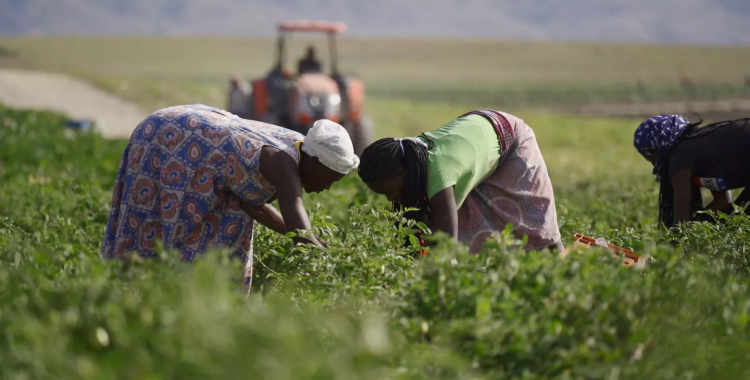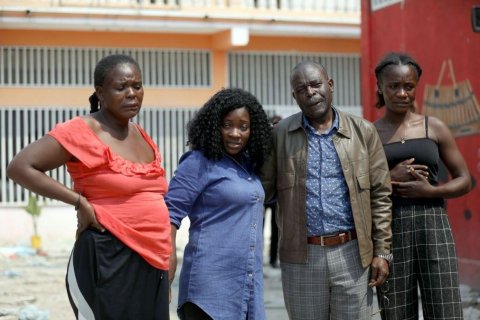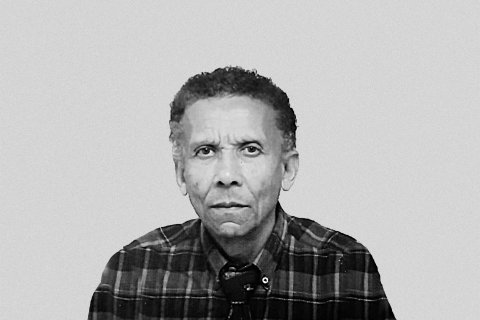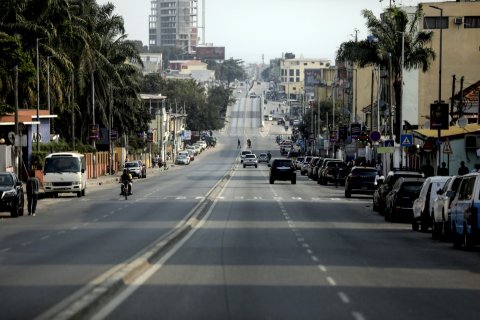National independence constituted the realization of a dream that characterized the struggle of generations who, throughout colonial domination, lived daily with the humiliations perpetrated by the rulers.
Despite the strong participation of the extractive industry – based particularly on iron, diamonds and oil – which had exponential growth between 1960 and 1972 – until independence, the Angolan economy was dominated by the agricultural sector.
Regarding the domination of agriculture in the Angolan economy, Fituni (1985) highlights that, in 1973, there were 8,038 agricultural companies in Angola. From 1965 until independence, the agricultural sector was marked by its exporting nature. Still according to the author, despite the strong agricultural production - counting on the heavy use of agricultural machinery and a number of employees estimated at 250,000 - just under 2% of total production was consumed in the country, essentially serving as a basis for food for salaried workers.
In the last 2 decades before independence, investments in the agricultural sector were predominantly linked to the production of coffee, cotton, sugar cane, sisal and bananas. This investment was
The result was the transformation of Angola into one of the world's main coffee producers - with almost 2/3 of the world's harvest - alongside Brazil, Colombia and Ivory Coast (FITUNI, 1985).
In the first half of the 70s, Angola produced an average of 218 thousand tons of coffee per year, representing 5% of the total world harvest. As Futini (1985) points out, Angola provided around 19% of the world's demand for coffee.
With the increase in coffee exports, Angola received more than 1.7 billion escudos annually, thus constituting the main agricultural product that generates income. Cotton was - in terms of its importance - the second export crop produced in the agricultural business sector. In 1973 it represented 11.6% of the value of gross agricultural production.
Another product that deserves to be highlighted is sisal: Angola ranked 3rd in terms of production of this crop, behind only Brazil and Tanzania. This position guaranteed approximately 10% of the world harvest and 25% of the African harvest.
The rise of oil as the main source of income and the precariousness of the agricultural sector
From the second half of the 1970s onwards, economic policies led us to reformulate the support base of our economy, defining oil as the country's main source of revenue (representing just over 60% of total revenue).
This reformulation became evident after the armed conflict, with oil playing an important role in the growth that Angola experienced with a boom recorded between 2004 and 2009. Angola's exports were essentially concentrated on oil, which made our economy dependent on the petrodollar. The dependence on which we debate is reflected in the movements of our Trade Balance, which closely monitor
parallel to whether or not the price of this Commodity rises.
For example, from 2012 to 2017, with the drastic fall in the price of oil, Angola recorded a drop of US$28.1 billion in its exports, that is, it went from US$58.4 billion to US$30, 3 billion of total exports (TRADE ECONOMICS, 2019).
As research by the Center for Studies and Scientific Research at the Catholic University of Angola points out, being one of the countries in the world that grew the most between 2000 and 2011, Angola is the 2nd largest oil exporter in sub-Saharan Africa and the 5th largest diamond producer in the world. (CEIC, 2013).
This growth is not reflected in the social conditions of the population, which is penalized by excessive income concentration. One of the consequences that also arises from the concentration of revenues in the oil sector has to do with the sharp growth of informality. It has been an alternative for the population to seek income.
However, it has been proven that having an economy dependent on the petrodollar conditions the continuity of growth and, consequently, the development of the country. Therefore, it is necessary to free ourselves from the excessively oil-rich economy and make space for other sectors (especially agriculture).
Considered the basis of support for any society, the agricultural sector represents an important outlet for the much-publicized campaign to diversify the economy. In addition to balancing exported products, enhancing agriculture as a whole will bring benefits to family farming that will help us reduce poverty rates in the country.
To achieve this, our investments need to be redirected towards diversifying our economy. Instead of investing unrestrainedly in the acquisition of assets abroad, for example, in part, investments should be directed to the agricultural sector.
With the large number of natural resources, relatively favorable soil and climate, our country has alternatives to move into the sphere of developed nations. The investment needs to be aligned with the verification of current methods of organizing production, with the real intention of impacting the pace of development of the sector.
In order to once again have a strong agricultural sector with a significant participation in the economy, policies to boost this sector must not lose sight of, among other things, investment in labor, machinery, transport and irrigation systems that reduce the dependence of production on climatic factors (specifically rain).
Despite the obstacles that exist in Angola - which include the almost absence of investments, allocation of arable land for other purposes, mined agricultural fields, etc. et al. - the agricultural sector represents
one of the potentials we have to leverage the Angolan economy, forcing us to establish new foundations for its participation in the economy, providing competitiveness and sustainable growth.
References
Center for Studies and Scientific Research of the Catholic University of Angola – ceic-ucan.org “Social report of Angola 2012” FITUNI, L. L. Angola-Natureza, Population and Economy. Moscow: Editora Progresso, 1985.
TRADE ECONOMICS, 2019
“I dream of seeing agricultural production as one of the main responsible for the values of Angola’s trade balance”.








